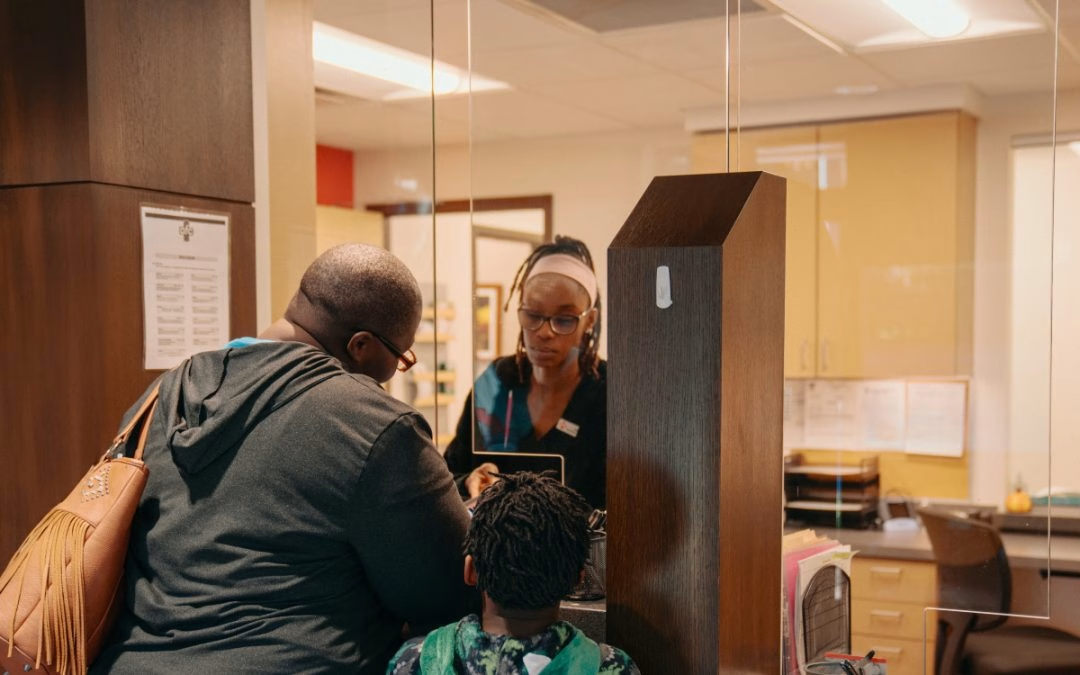
Discover how lifestyle changes can help manage Seasonal Affective Disorder (S.A.D.). Visit urgent care near you today.
When the winter months roll around, it’s easy to notice how the shorter days and reduced sunlight can affect your mood. For some, the impact goes beyond a temporary case of the “winter blues” and develops into Seasonal Affective Disorder (S.A.D.), a form of depression that follows a seasonal pattern. If you’re experiencing symptoms of S.A.D., like low energy, oversleeping, or difficulty concentrating, you might be wondering what you can do to feel better. While professional treatment is often necessary, certain lifestyle changes can make a big difference in managing symptoms.
Here in Sevierville, TN, there’s no shortage of opportunities to help brighten your mood, even during the colder months. From taking a stroll along the scenic trails of the Great Smoky Mountains National Park to exploring the charming local shops and eateries in downtown Sevierville, staying active and connected to the community can be a natural mood booster. Incorporating intentional habits into your daily routine can also make the winter season feel a little sunnier. Let’s explore how lifestyle changes can support your mental health.
Why Do Lifestyle Changes Matter for S.A.D.?
S.A.D. symptoms are often triggered by reduced sunlight, which can disrupt your internal clock and lower serotonin levels in the brain. While treatment options like light therapy and medications are effective, incorporating positive lifestyle habits can complement these therapies and enhance your overall well-being. These changes may not replace professional care, but they can help improve your symptoms and quality of life.
Suggested Lifestyle Changes to Help Manage S.A.D.
Here are some simple yet effective lifestyle changes to try if you’re experiencing S.A.D.:
Get More Natural Sunlight
- Open your blinds or curtains during the day to let in as much light as possible.
- Spend time outside, even on cloudy days, to soak up natural daylight.
- Sit near windows while working, reading, or relaxing to maximize exposure to natural light.
Stay Physically Active
- Exercise regularly, as physical activity releases endorphins that boost your mood.
- Try outdoor activities like walking, jogging, or biking along the greenways in Mooresville.
- Sign up for a fitness class or try yoga to combine movement with stress relief.
Maintain a Healthy Diet
- Focus on eating nutrient-rich foods like fruits, vegetables, whole grains, and lean proteins.
- Include omega-3 fatty acids in your diet, which are known to support brain health.
- Avoid overindulging in sugary or processed foods, as they can cause energy crashes.
Normalize Sleep Patterns
- Stick to a consistent sleep schedule by waking up and going to bed at the same time each day.
- Avoid napping during the day, which can interfere with nighttime sleep.
- Create a calming bedtime routine, such as reading or meditating, to signal your body it’s time to rest.
Manage Stress Effectively
- Practice relaxation techniques like deep breathing, mindfulness, or progressive muscle relaxation.
- Set aside time for hobbies or activities that bring you joy and reduce stress.
- Consider joining a local support group or connecting with friends to share experiences and coping strategies.
Stay Socially Connected
- Make an effort to spend time with friends, family, or coworkers, even when you’re feeling down.
- Explore local events or volunteer opportunities in Mooresville to stay engaged with your community.
- Host a game night, dinner, or casual get-together to create positive social interactions.
Embrace Outdoor Adventures
- Take advantage of Mooresville’s scenic areas like the Carolina Thread Trail for refreshing walks.
- Visit local attractions such as Lake Norman for kayaking, fishing, or picnicking.
- Plan day trips to nearby destinations like Charlotte or the Blue Ridge Mountains for a change of scenery.
Building Long-Term Resilience
Adopting these habits not only helps manage S.A.D. but also contributes to overall mental and physical well-being year-round. The key is consistency—small daily actions can add up to big changes over time. Pair these lifestyle changes with professional treatment for the best results.
When to Seek Professional Help
While lifestyle changes can improve your symptoms, they may not be enough if S.A.D. significantly impacts your daily life. If you’re struggling, don’t hesitate to visit our clinic. Our team of providers can recommend additional treatments like light therapy, medication, or psychotherapy to provide more targeted support.
By embracing a proactive approach to your mental health, you can reduce the impact of S.A.D. and look forward to brighter days ahead!


